An education in the liberal arts and sciences prepares students for a wide range of careers. Although many people assume that one’s major often translate into the equivalent career, the reality is that many employers favor skills wrought in liberal arts and sciences education and recruit job candidates from a pool of possible majors, emphasizing the degree completion over the major(s) used to achieve it. Few professional positions require a specific undergraduate major.
An education in our College with one (or more!) of our 43 majors nourishes the development of skills that recruiters expect from job candidates, including communications, problem-solving, teamwork, and innovation skills. Our graduates work in most areas of business, industry, government, and education. They also acquire excellent preparation for graduate and professional schools, which generally do not prefer specific majors as long as students prepare appropriately to meet the entrance requirements.
In addition, undergraduate students in our College have exciting opportunities to work closely with our faculty on their research or to design their own research program. Conducting research as an undergraduate prepares one for graduate work and imparts valuable project management and collaboration skills. A number of scholarships are available.
UF-CLAS Shared Language Program
In the Fall 2021 term, the University of Florida College of Liberal Arts and Sciences (CLAS) will offer seats in 15 language courses to any interested student in the State University System (SUS). These courses will all be taught online (either synchronously or asynchronously). Students must obtain permission from their home institutions prior to enrollment in any of the courses in the UF-CLAS Shared Language Program. Learn more about the UF-CLAS Shared Language Program.
Our Majors
Expand All
African American Studies
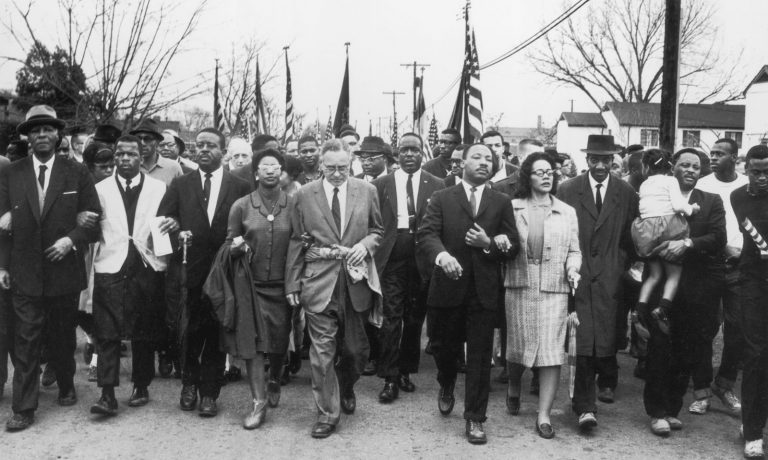
The primary emphasis of the African American Studies program is to educate students about the theories and methodologies pertaining to the study of African Americans. Students will be able to compare and contrast the experiences of people of African descent in the U.S. to those in the wider African Diaspora. They also learn through participation in community-service activities.
Favorite Courses
- African American Literature (AML 3270)
- African American Politics (AFA 4931)
- The Politics of Black Hair (AFA 4931)
- Introduction to African American Studies (AFA 2000)
- African American Religion (REL 3139)
- Civil Rights and Religion (AFA 3930)
- Haitian Creole (HAI 1130)
- Black Feminist/Womanist Theory (AFA 3332)
Possible Careers
- Attorney
- Civil Rights Professional
- Community Activist
- Government Employee
- Journalist
- Public Policy Professional
- Teacher
Graduates are Now:
- A doctoral candidate at the W.E.B. DuBois Department of Afro-American Studies at the University of Massachusetts, Amherst.
- An actor.
- A high school Spanish teacher.
- A corporate associate at a law firm in New York City.
More Information
African Languages
More Information
Anthropology
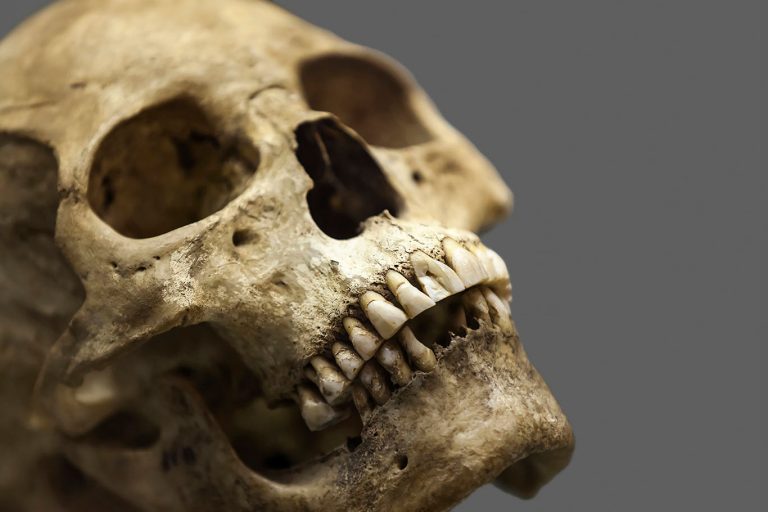
Anthropology majors study people as they relate to their culture and examine the patterns of social behavior. Anthropology looks at all aspects of human biological and social life from earliest times to the present, and seeks to understand how humans adapt to their natural and social environments. Anthropology has four subfields: cultural anthropology, archaeology, biological anthropology, and linguistics.
Favorite Courses
- Human Sexuality and Culture (ANT 2301)
- Lost Tribes and Sunken Continents (ANT 2149)
- Development of World Civilization (ANT 3141)
- Human Evolutionary Anatomy (ANT 3515)
- Skeleton Keys: Forensic Identification (ANT 3520)
- The Primates (ANT 3930)
- Race and Racism (ANT 3930)
- Culture and Medicine (ANT 4462)
Possible Careers
- Behavioral Scientist
- Cultural Resource Manager
- Ecologist
- Development Specialist
- Editor
- Ethnologist
- Foreign Service Officer
- Forensic Anthropologist
- Marketer
- Museum Curator
- Peace Corps
- Policy Specialist
- Public Relations
- Specialist
- Research Director
- Social Worker
- Organizational Psychologist
Graduates are Now:
More Information
Arabic

The Arabic language is the key to understanding the culture and history of North Africa, the Middle East, and the Arabian Peninsula. Arabic is also the liturgical language of more than a billion Muslims, and it is one of the six official languages of the United Nations. The Arabic specialization of the Foreign Languages and Literatures major enables students to develop an appreciation for the complexity of the many facets of the Arab world: its society, culture, history, arts, religions, and literary heritage.
More Information
Astronomy and Astrophysics

Curious about what’s “out there?” Students who are comfortable with mathematics and physics and have a strong desire to understand the nature of the Solar System and other planetary systems, stars, galaxies and the universe, are encouraged to consider majoring in astronomy. UF’s astronomy department is the only U.S. institution with access to the Gran Telescopio Canarias (GTC), whose superb image quality “sees” both the faintest and the most distant objects in the universe, from nearby, newborn planets and stars, to the most distant galaxies.
Favorite Courses
- Astronomy & Astrophysics 1 (AST 3018)
- Astronomy Laboratory: Teaching lab and observations at the Campus Teaching Observatory (AST 1022L)
- Discover the Universe (AST 1002)
- History of Astronomy through Newton (AST 3043)
- Introduction to the Solar System (AST 2003)
- Life in the Universe: Explore exoplanets and possibilities for extraterrestrial life (AST 2037)
Possible Careers
- Aerospace Engineer
- Astrophysicist
- Computing and Imaging Processor
- Defense Contractor
- Educator
- Engineer
- Government Scientist
- Instrument Designer
- Industrial Researcher
- Management Consultant
- Observing Technician
- Physicist
- Planetarium Director
- Science Librarian
- Science Museum Director
Graduates are Now:
- A visiting scientist at the Harvard-Smithsonian Center for Astrophysics
- A science Fellow at the Gemini Observatory
- An interim director of the Florida Space Institute
More Information
Biology
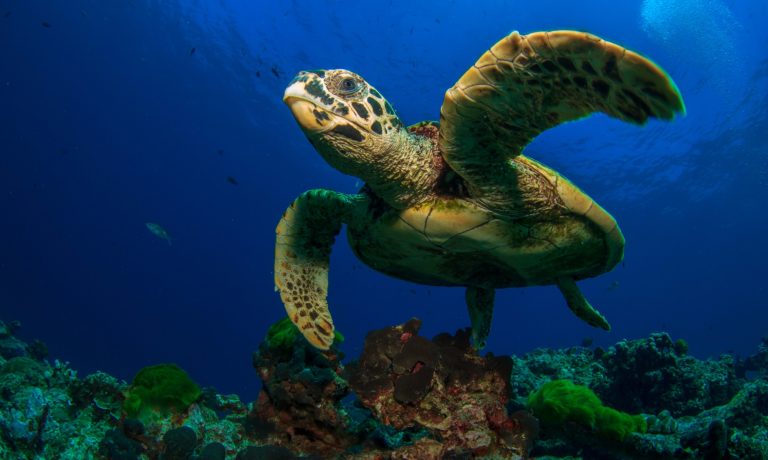
Biology majors develop a fundamental knowledge of animals, plants and microorganisms. This major takes a broader approach to biology than the more specialized majors of Botany and Zoology. Pre-professional students, students seeking careers in education, and those with interdisciplinary interests in ecology, physiology and biochemistry, systematics, or molecular biology will be interested in this major.
Favorite Courses
- Evolution (PCB 4674)
- Evolutionary and Developmental Biology (ZOO 3603C)
- Invertebrate zoology (ZOO 2203C)
- Plant Ecology (PCB 3601)
Possible Careers
- Bioinformatician
- Biological Illustrator
- Biotechnologist
- Computational Biologist
- Conservationist
- Forensic Scientist
- Professor
- Public Health Campaign Director
- Research Biologist
- Science Advisors
- Science Museum Educator
- Science Writer
- Teacher
Graduates are Now:
More Information
Botany
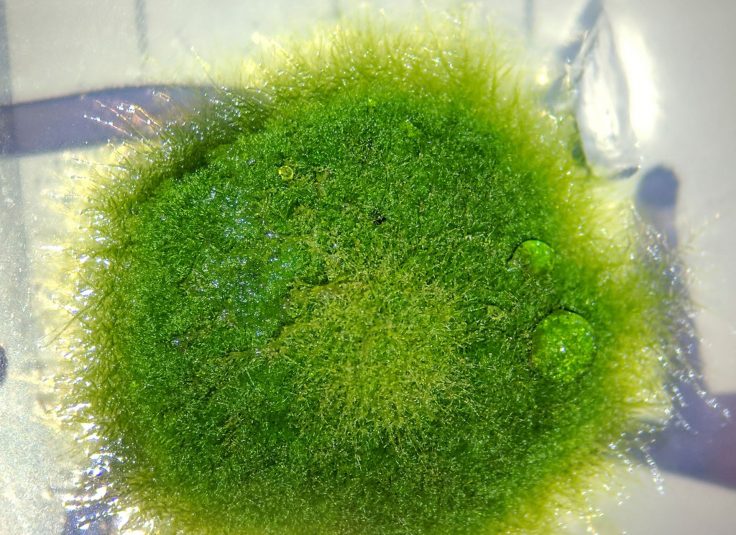
Botany majors embark on a field of study that provides a broad background in plant biology, from the molecular level to that of the organism. Students take courses in ecology, genetics, physiology, taxonomy, anatomy, molecular biology and biochemistry. Students take part in supervised research, assisting faculty on research projects on campus and abroad. The Soltis Lab within the department is pioneering work on mapping the genome of a relative of the oldest flowering plant known, providing a biological reference point for efforts to improve agriculture and forestry.
Favorite Courses
- Physiology and Molecular Biology of Plants (BOT 3503)
- Plants and Human Affairs (BOT 2800)
- Plant Ecology (PCB 3601)
Possible Careers
- Biochemist
- Biotechnologist
- Conservationist
- Educator
- Field Scientist
- Forester
- Educational Botanist
- Environmental Organization Botanist
- Federal and State Agency Researcher
- Industrial Botanist
- Park Ranger
- Plant Health Inspector
- Pharmaceutical Researcher
Graduates are Now:
- A researcher for the U.S. Department of Agriculture at the Whitmore Foundation Farm in Leesburg, Florida
- A Science and Research Coordinator and GIS Manager for The Nature Conservancy in Florida responsible for six central Florida preserves totalling 18,000 acres
More Information
Chemistry and Biochemistry
 Known as the central science, chemistry serves as a nucleus for the biological and physical sciences, as well as agricultural, engineering, medical and health disciplines. Students can choose the standard chemistry program or the biochemistry program, which is designed for students wanting to pursue courses with a biological focus. Chemistry department labs and centers are doing groundbreaking research on polymers, nanostructures, quantum theory, and macromolecular science. Undergraduate research frequently results in journal publications and presentations at scientific meetings.
Known as the central science, chemistry serves as a nucleus for the biological and physical sciences, as well as agricultural, engineering, medical and health disciplines. Students can choose the standard chemistry program or the biochemistry program, which is designed for students wanting to pursue courses with a biological focus. Chemistry department labs and centers are doing groundbreaking research on polymers, nanostructures, quantum theory, and macromolecular science. Undergraduate research frequently results in journal publications and presentations at scientific meetings.
Favorite Courses
- CHM 2054L: A cross-disciplinary, inquiry-based laboratory established as part of the HHMI Science for Life initiative. Experiments emphasize the importance of chemistry in quantitative life sciences research.
- CHM 2212-2213: An alternate organic chemistry sequence intended specifically for chemistry majors, featuring smaller class sizes and inquiries into areas of especial interest to future chemists.
Possible Careers
- Agricultural Chemist
- Analytical Chemist
- Biochemist
- Bioengineer
- Chemical Information Specialist
- Consultant
- Consumer Product Chemist
- Forensic Chemist
- Pharmaceutical Chemist
- Synthetic Chemist
- Geochemist
- Hazardous Waste Manager
- Materials Scientist
- Oil and Petroleum Industry Scientist
- Research and Development Manager
- Science Writer
Graduates are Now:
More Information
Chinese
 The Department of Languages, Literatures, and Cultures offers a Chinese Studies major. Over one billion people, about one-seventh of the world’s population, speak some variety of Chinese as their native language. Students entering this major will enter a high demand career market in commerce, diplomacy, translation, and business. This major develops proficiency in Chinese (EAC) and acquaints students with the literature and cultural history of China. Courses are also available for those interested in business Chinese, classical Chinese, and film and women’s studies.
The Department of Languages, Literatures, and Cultures offers a Chinese Studies major. Over one billion people, about one-seventh of the world’s population, speak some variety of Chinese as their native language. Students entering this major will enter a high demand career market in commerce, diplomacy, translation, and business. This major develops proficiency in Chinese (EAC) and acquaints students with the literature and cultural history of China. Courses are also available for those interested in business Chinese, classical Chinese, and film and women’s studies.
Favorite Courses
- Business Chinese (CHI 3440)
- Chinese Calligraphy (CHI 3403)
- Dream of the Red Chamber (CHT 4111)
- Journey to the West (CHT 4603)
- Popular Culture and Chinese Cinema (CHI 4930)
Possible Careers
- Analyst
- Business Administrator
- Consultant
- Editor
- Educator
- Foreign Service Officer
- Customs Officer
- Interpreter
- Journalist
- Political Advisor
- Public Relations / Communications Officer
- Reporter
- Sales Agent
- Translator
- Travel Agent
Graduates are Now:
- A market representative for an American clothing retailer in China
- An investment banking analyst at Barclays, LLC.
- A Pulitzer Prize winning reporter on China for the Wall Street Journal
More Information
Classical Studies

Classical Studies majors gain a fundamental knowledge of ancient Greek, Roman, and Mediterranean culture by studying classical languages and literatures, art history, ancient history, archaeology, philosophy, and comparative literature. Students develop proficiency in Latin or Ancient Greek, or can opt to pursue the newly developed major track in Modern Greek Studies (CS-MGK).
Small class sizes, emphasis on critical thinking and expression and a faculty committed to involvement in lower-level undergraduate courses make this major appealing to students who want excellent preparation for entry to professional schools (e.g., medicine or law). The department teaches over 100 students in the major and 90 in the minor, making it one of the largest undergraduate Classics programs in the nation.
Favorite Courses
- America and Antiquity (CLA 3930)
- Classics and Science Fiction (CLA 3930)
- Sex and Gender in the Ancient World (CLA 3504)
Possible Careers
- Archaeologist
- Archivist
- Book Editor
- Business Administrator
- Film Consultant
- Educator
- Event Coordinator
- Human Relations Administrator
- Marketer
- Museum Administrator
- Project Manager
- Public Relations Specialist
- Speechwriter
- Translator
- Writer
Graduates are Now:
- The “Miami Bankruptcy and Creditor-Debtor Rights Lawyer of the Year” according to The Best Lawyers in America for 2011
- An Internist and Gastroenterologist in Miami, FL
- A Senior Faculty Technology Specialist at New York University in New York, NY.
More Information
Computer Science

This program combines the study of computer science with a liberal arts education. It prepares students for employment as computing professionals while offering significant freedom to choose coursework in other areas. The major is especially popular with students who want the technical education in computer science with the flexibility to take other non-technical courses, sometimes in the form of a minor or certificate.
More Information
Criminology

Students seeking a degree in criminology and law will study the complexities of relationships among the legal, social, political, historical and psychological influences affecting legal processes. Courses focus on explanations for the development of law within society, why people break laws and how society reacts to law-breaking. Interdisciplinary breadth is considered essential and students are encouraged to enroll in relevant courses offered outside the department. Criminology and Law majors often pursue careers within the criminal or juvenile justice systems, such as courts, law enforcement, and corrections. Other students go on to attend law school or to conduct research on criminological issues at a graduate level.
Favorite Courses
- Corrections (CJC 4010)
- Criminal Law (CJL 4110)
- Criminal Procedure (CJL 4410)
- Drugs and Alcohol (CCJ 4934)
- Homicide (CCJ 4934)
- Law and Society (CJL 3038)
- Law Enforcement (CCJ 4940)
- Juvenile Justice (CJJ 4010)
- Juvenile Law (CCJ 4050)
- Psychology and Law (CJL 4037)
- White Collar Crime (CCJ 4644)
Possible Careers
- Attorney
- Correctional Planner
- Counselor
- Criminologist
- Government Agent (DEA/SBI/FBI/CIA)
- Juvenile Court Advocate
- Litigation Manager
- Loss Prevention Specialist
- Police Services
- Probation Officer
- Professor
- Researcher
- Security Director
- Social Worker
- Victim Services Specialist
Graduates are Now:
- A criminal attorney in private practice
- A research analyst for the US Department of Justice
- A loss prevention and security director for a major US retail chain
More Information
Data Science

Data Science is a field of study that combines computer science (programming, databases, and algorithms) and statistical methodology, both with a strong mathematical foundation, to apply to diverse areas in ethical ways. Data scientists work in many areas, including business, economics, medicine, epidemiology, agriculture, environmental sciences, sports, and all aspects of government. With the increasing digitization and networking of society, data have become ever more ubiquitous, further expanding the demand for data scientists and their expertise in the collection, management, and analysis of data.
Learn more about Data Science
Economics

Economics teaches students how to look at a complex world and make observations on behaviors. Majors learn the analytical skills needed to understand how households, firms and governments make economic decisions and how to compare costs and benefits in maximize objectives. In turn, students can determine the implications of those economic decisions in relation to the allocation of society’s resources, the pricing of goods and services, the distribution of income, and the behavior of macroeconomic variables. An economics degree is appropriate for students intending to pursue advanced degrees in the social sciences and for enrollment in professional schools of management, law or public administration.
Favorite Courses
- The Firm in the Global Economy (ECO 4730)
- Game Theory and Applications (ECO 4400)
- Health Care Economics (ECP 3530)
- International Trade (ECO 3704)
- Population Economics (ECP 3113)
- Public Choice (ECO 3532)
Possible Careers
- Accountant
- Auditor
- Budget Analyst
- Chief Executive
- Clergy
- College Professor
- Economist
- Education Administrator
- Financial Analyst
- Financial Examiner
- Historian
- Insurance Sales Agent
- Market Research Analyst
- Operations Research Analyst
- Public Policymaker
- Purchasing Manager
- Real Estate Sales Agent
- Sociologist
- Survey Researcher
- Wholesale and Retail Buyer
Graduates are Now:
More Information
English

An English major prepares students for diverse careers in law, publishing, advertising, media, business, and teaching, among others. Courses introduce students to a world of experiences that cannot be exhausted in the brief span of a college education; new authors, new works, new media, and new tools for understanding that continually enlarge and transform the world. Students may pursue expertise in one of several specialized programs, including African Diaspora Studies; Children’s Literature; Creative Writing; Feminisms, Genders and Sexualities; Film and Media Studies; Medieval Studies; and Postcolonial Studies.
Favorite Courses
- Biopolitics & Biomedics (ENG 3011)
- Film Analysis (ENG 2300)
- Internet Literature (LIT 3400)
- Writing through Media (ENG 1131)
Possible Careers
- Actor
- Advertising Executive
- Creative and technical writer
- Editor
- Financial Service Worker
- Filmmaker
- Manager
- Poet
- Public Relations Professional
- Reporter
- Salesman
- Social Worker
- Teacher
- Video Game Developer
- Writer
Graduates are Now:
More Information
Foreign Languages and Literatures
French and Francophone Studies

French is spoken in 44 countries by approximately 200 million people. A major in French and Francophone Studies offers the linguistic, cultural and intellectual training required for a variety of diverse fields in a globalized market. Majors discover the connections of past and present by learning of the exceptionally rich humanistic tradition of France from the Middle Ages through the modern period. French majors have the flexibility to design an individualized course of study to focus on business, cinema, culture, language, linguistics or literature.
Favorite Courses
- The Comic in Seventeenth and Eighteenth-Century French Literature
- Contemporary French Commerce: This course prepares students for the Business French Certificate Exams (FRE 3442)
- European Identities, European Cinemas
- French and Creole Comparative Linguistics (FRE 4930)
- Hip Hop in Europe—Paris (taught in English) (FRT 4xxx)
- Modern French Poetry in Motion: La poésie dans tous ses états
- Women in French literature and/or Cinema
Possible Careers
- Banker
- Book Publisher
- Curator
- Diplomat / Attaché
- Editor/ Proofreader
- Educator
- Film Director
- Foreign Exchange Trader
- Teacher
- Hotel Manager
- Legal Professional
- Military Translator
- Public Relations
- Specialist
- Sommelier (a cellar master or wine steward)
- Speech Therapist
- Translator
- Travel Agent
Graduates are Now:
- A volunteer in the Peace Corps
- A Teaching Assistant in the French government
- Employed in the U.S. Consulate in Quebec
More Information
Geography

Geography majors learn about the Earth’s physical environment, including climate. Students learn to understand social, cultural, economic and environmental concepts from a spatial perspective. Students learn techniques such as geographic information systems (GIS), remote sensing, aerial photo interpretation, database handling, and computer-based cartography to assist in regional planning, map production, and environmental assessment.
Favorite Courses
- Digital Image Processing (GIS 4037)
- Extreme Weather (GEO 2242)
- Extreme Floods (GEO 3341)
- Geography of Alcohol (GEO 3803)
- Geography of Ethnic Conflicts (GEO 4938)
- Geography of Pop Music (GEO 2426)
- Geography of Vector-borne Diseases (GEO 4938)
- Hurricanes (MET 4532)
- Introduction to Climate Change (GEO 3930)
- Medical Geography (GEO 3930)
- Parks in Peril (GEO 3930)
Possible Careers
- Business Administrator
- Business Geographer
- Cartographer
- Climatologist
- Environmental Management
- Financial Analyst
- Geographic Information Systems Specialist
- Information Technology Specialist
- Marketer
- Military Analyst
- Researcher
- Transportation Manager
- Urban and Regional Planner
- Writer
Graduates are Now:
- A geospatial technologist for Earth Eye, a mapping and remote sensing firm
- A meteorologist for the Weather Channel
- A research physical scientist for the US Geological Survey
More Information
Geology
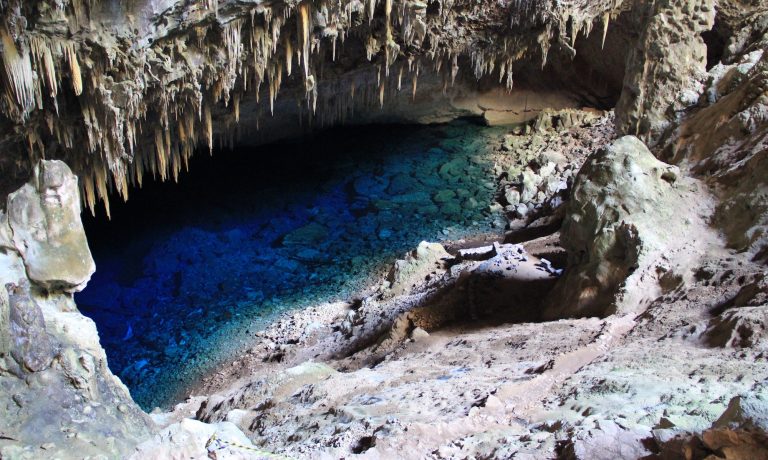
Geology majors learn about the Earth’s physical environment including climate, geological resources, geological hazards and remediation. Geology graduates gain a detailed understanding of critical issues as climate change, sustainability and the nuances of human activity and its impact on the environment. Majors learn assessment- and field-based techniques and geographic information systems (GIS) that are used in evaluating the various impacts of humans on the physical Earth and hydrologic environment.
Favorite Courses
- Florida Geology Lab (GLY 1150L)
- Geology of American National Parks (GLY 3163)
- Hydrology and Human Affairs (GLY 3882)
- Oceans and Global Climate Change (GLY 3074)
- Volcanoes and Earthquake Hazards (GLY 1880)
Possible Careers
- Exploration Geologist
- Geologic Hazard Investigator
- Geophysical Data Technician
- Government Researcher
- Hydrologist
- Marine Engineer
- Materials Scientist
- Mining & Geological Engineer
- Petroleum Engineer
- Remediation and Waste Manager
- Technical Consultant
Graduates are Now:
More Information
German

For many students, the German major is an enriching discovery of their own past: more than 60 million Americans are of German heritage, and more Americans can trace their ancestry to Germany than to any other foreign country. German studies encompasses the works of German literature, the culture of the Middle Ages, German cinema, writings of ethnic minorities in German-speaking countries, economics, and the European Union. By acquiring proficiency in the German language, students learn the most widely spoken language in Europe and join a community of more than 130 million speakers of German around the world.
Favorite Courses
- From Nuremberg to South Park: Nazis in Film (GET 3930)
- German in Business (GER 3440)
- The Literature of Knighthood (GET 3200)
Possible Careers
- Diplomatic Services Officer
- Editor
- Educator
- Immigration / Customs Officer
- International Business Person
- Interpreter
- Journalist
- Non Government Organization Officer
- Professor
- Public Relations / Communications Officer
- Sales Agent
- Translator
- Travel Agent
Graduates are Now:
- A Vice President and Financial Advisor at Morgan Stanley Smith Barney
- A Managing Attorney at Brient Intellectual Property Law
- A Senior Partner at Kekst and Company, a leading strategic, corporate, and financial communications firm headquartered in New York City
More Information
Hebrew

By assuming an interdisciplinary approach to Hebrew language and culture, students acquire knowledge of the close relationship between politics, history, religions, arts and cultures in Israel. In addition to working toward proficiency in Hebrew, students will develop close reading and critical thinking skills. Students graduating with this major will find job opportunities in Jewish community organizations, the government, and consulting. In addition, due to the interdisciplinary nature of the major, students will be well prepared for the rigor of graduate studies in the humanities.
More Information
Hispanic and Latin American Languages, Literatures and Linguistics
More Information
History
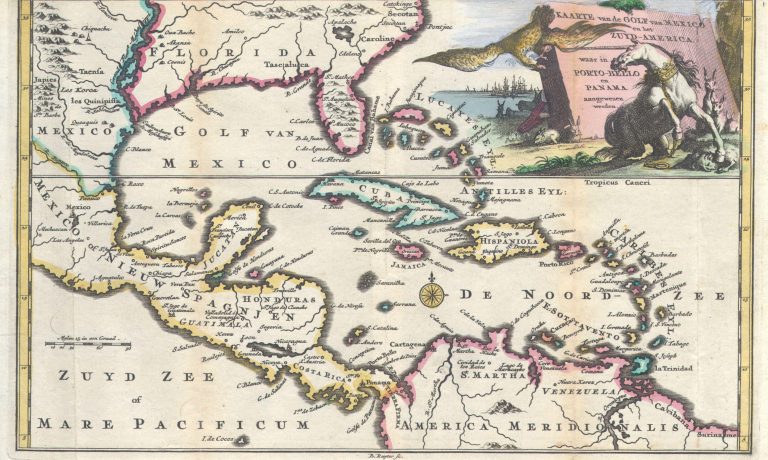
History majors focus on the development of three related skill sets critical to professional success in today’s complex world: writing, critical analysis, and oral communication. The major places emphasis on small classes that focus on extensive reading, contentious debate and interpretative writing, making it an ideal prepatory major for preprofessional students.
Favorite Courses
- American Environmental History (AMH 3630)
- The History of Terrorism (EUH 3931)
- The History of American Capitalism (AMH 4373)
- Race and Violence in the Jazz Age (AMH 3931)
- Medieval Magic and Witchcraft (EUH 3931)
Possible Careers
- Advertising Executive
- Analyst
- Archivist
- Banker
- College Professors
- Curators
- Editor
- Educator
- Foreign Service Officer
- Journalist
- Marketer
- Museum Conservators & Technicians
- Personnel Manager
- Public Relations Specialist
- Researcher
Graduates are Now:
More Information
Interdisciplinary Studies

The College of Liberal Arts and Sciences recognizes that students’ academic and professional interests may include more than one discipline and that some majors are not formally available at the university. Because interdisciplinary approaches, research, and curricular activities are becoming increasingly appropriate and valuable within the liberal arts and sciences and other fields, UF students have the option to develop and pursue interdisciplinary (IDS) majors that cross the boundaries of numerous disciplines.
Graduates are Now:
More Information
International Studies

International Studies is an interdisciplinary program that provides knowledge of international or global issues including regional and global political economies; comparative cultural and political systems; ethnicity, identity, and belief systems; peace, conflict, and wars; gender, culture, and politics; and global science and environmental issues (e.g., water management, etc.). The major prepares students for careers as specialists or representatives in: international relations, international publications, cross cultural training in educational and business fields, public affairs, government foreign service, export sales, and international research.
Favorite Courses
- Peoples of Africa (ANT 4352)
- German Folk and Fairy Tales (GET 3930)
- Chinese Culture (CHT 3500)
- Secret Police under Communism (EUS 3220)
- Politics of the Middle East (CPO 3403)
- Luso-Brazilian Civilization (POR 3500)
Possible Careers
- Attorney
- Communications Specialist
- Export Sales
- Foreign Company Representative
- Foreign Service Officer
- Intelligence Officer
- Journalist
- Law Enforcement
- Legislator
- Peace Corps
- Policy Analyst
- Public Relations Specialist
More Information
Italian

The Italian specialization in Foreign Languages and Literatures provides the linguistic and cultural knowledge students need to understand and appreciate the language, literature, cinema, history, and society of the Italian peninsula. Courses reflect the complex cultural traditions of this Mediterranean nation from the Middle Ages and the Renaissance to the modern period.
More Information
Japanese Studies

The Department of Languages, Literatures, and Cultures offers a Japanese Studies major.Spoken by over 130 million people, Japanese is spoken almost exclusively in Japan and in Japanese emigrant communities around the world. The major in East Asian Languages and Literatures (EALL) develops proficiency in the Japanese (EAJ) language and acquaints students with the literature and cultural history of Japan. Courses are also available for those interested in business Japanese, classical Japanese, film and women’s studies. An EALL major is excellent general preparation for entry to professional schools or careers in foreign service, commerce, translation, business, and tourism, among others.
Favorite Courses
- Japanese Folklore (JPT 4502)
- Language in Japanese Society (JPN 3730)
- Samurai War Tales (JPT 3300)
- The Tale of Genji (JPT 4130)
Possible Careers
- Analyst
- Business Administrator
- Consultant
- Customs Officer
- Editor
- Educator
- Foreign Service Officer
- Interpreter
- Political Advisor
- Public Relations / Communications Officer
- Reporter
- Sales Agent
- Translator
- Travel Agent
- Writer
Graduates are Now:
- A Project Manager at Showa Ika Kohgyo, a spinal implant company in Tokyo
- A Foreign Service Officer in the US State Department
- A Producer for Good Morning America
More Information
Jewish Studies
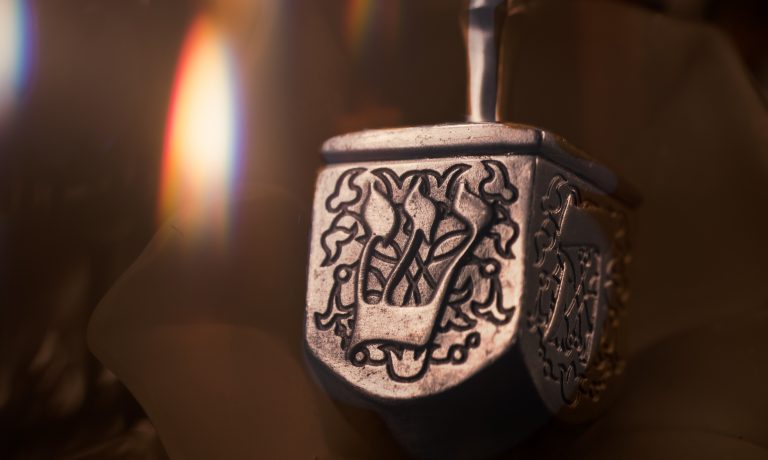
Jewish Studies majors develop an understanding of the broad spectrum of Jewish culture, history, society, and religion. The diversity and complexity of the field allows students to develop critical thinking skills. The curriculum emphasizes historical transformations and comparative frameworks among various Jewish communities and with other groups and religions. Courses emphasize the study of class, ethnicity, gender, race and sexuality. Students often combine the Jewish Studies major with other majors and go on to professional careers in law, medicine, journalism, business or other professions.
Favorite Courses
- Holocaust Studies (JST 3930)
- The Israeli/Palestinian Conflict (JST 4936)
- Judaism and Politics (JST 4936)
- Motherhood in Modern Hebrew Fiction (JST 3930)
- Representations of Moses (JST 3930)
Possible Careers
- Administrator
- Business Professional
- Conflict Resolution Specialists
- Consultant
- Editor
- Economics Advisor
- Foreign Service Officer
- International Relations Specialist
- Journalist
- Lobbyist
- Political Aide
- Public Policy Analyst
- Religious Professional
Graduates are Now:
- Director of Jewish Federations, Campus Hillels
- A Rabbi
- A lobbyist for Jewish organizations in Washington, D.C.
More Information
Linguistics

Linguistics majors study language from multiple perspectives. They analyze words and the structure of languages; how speech is used in ordinary conversation; dialects; how children acquire languages; how adults acquire a second language; and the relationships of language to gender, the brain and the use of computers.
Linguists analyze and contribute to mass communication, they testify about language meaning and use in the courtroom, and they analyze natural language processing. Linguists also teach non-native speakers to speak, read, write and comprehend English and other languages.
Favorite Courses
- Brain and Language: Introduction to brain and language research; covers brain imaging techniques, auditory perception, semantic representation, language acquisition, among other topics (LIN 4790).
- Second Language Acquisition: How adults and children acquire a second language, and the sociolinguistic, pragmatic, psycholinguistic, and other factors affecting this (LIN 4721).
- Sounds of Human Language: The study of all sounds of the world’s languages; you will learn how to produce these sounds, and how to transcribe them using the International Phonetic Alphabet (LIN 3201).
- Structure of Human Language: How words and sentences are formed in the world’s languages, and the similarities and differences among languages in this respect (LIN 3460).
Possible Careers
- Analyst
- Consultant
- Dialect Coach
- Educator
- English as a Second Language (ESL) Teacher
- Field Researcher
- Foreign Service Officer
- Journalist
- Lexicographer
- Linguist
- Speech Recognition Technologist
- Technical Writer
- Test Developer
- Translator
Graduates are Now:
- The chief linguist at a computer programming company, working on Arabic and Russian/Slavic algorithms for the State Department
- An Editor for Oxford University Press
- A Counterintelligence Officer in the Marine Corps
More Information
Marine Sciences
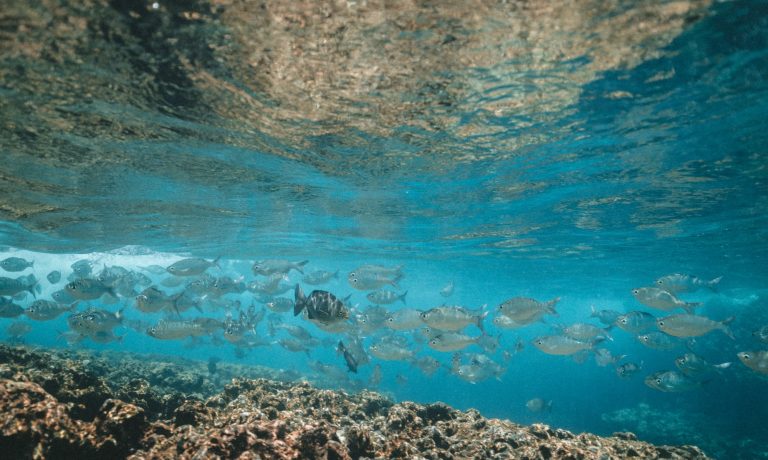
Students considering graduate study, pre-professional students, students seeking careers in education, and those with interdisciplinary interests in ecology, physiology and biochemistry, systematics, molecular biology, or marine geology will be interested in Marine Studies interdisciplinary major. Students declaring this major may be affiliated with the Department of Biology Department or the Department of Geological Sciences.
Oceans are an important facet of our global environment: they cover more than 70 percent of the Earth’s surface; they provide us with food, transport, and resources; and they play a significant role in controlling climate. However, the world’s oceans remain largely unexplored below the surface, making them one of the last great frontiers for scientific discovery. Marine environments are inherently dynamic and are governed by a broad suite of interactive physical, chemical, biological, and geological processes.
Favorite Courses
- Data Analysis Techniques for Coastal and Ocean Engineers (OCP 6168)
- Biology of Sea Turtles (ZOO 6406)
- Global Climate Change (GLY 6075)
Possible Careers
- Aquarium Scientist
- Coastal Planning
- Ecotourism Manager
- Marine Biogeochemistry
- Marine Biology and Ecology
- Marine Conservationist
- Marine Geology and Geophysics
- Marine Resources and Law
- Ocean Engineering
- Physical Oceanography and Climate Dynamics
- Science Museum Educator
- Science Writer
More Information
Mathematics

Mathematics majors study quantity, structure, space, and change. Mathematics is an essential tool and its majors are in high demand in a number of fields, including the social and natural sciences, engineering, and medicine. Studying mathematics develops the skills of critical thinking, oral and written communication, arguing logically and rigorously, thinking abstractly, formulating and solving problems, and analyzing data and mathematical models. It also helps develop proficiencies in working with computers and quantitative data, and the ability to work in groups.
Favorite Courses
- Dynamical Systems and Chaos (MTG 5412)
- Fourier Analysis (MAP 4413)
- Fractal Geometry (MTG 5411)
Possible Careers
- Actuarial Scientist
- Biomathematician
- Biostatistician
- Computer Scientist
- Cryptographer
- Educator
- Engineer
- Forensic Analyst
- Financial Analyst
- Operations Manager
- Population Ecologist
- Programmer
- Project Manager
- Public Policy Analyst
- Technical Writer
Graduates are Now:
- A mathematical financial analyst at Capital One
- A Biostatistician at Johns Hopkins Hospital
- A recruitment officer with Google
More Information
Meteorology
Meteorology concerns the physics, dynamics, and chemistry of the Earth’s atmosphere and its relationship with hydrosphere, land, and human systems, with the goals of understanding its composition, structure, and motion, and accurately predicting atmospheric phenomena.
Through courses for the tracks in General Atmospheric Science; Applied Meteorology, Hazards, and Global Change; and Broadcast Meteorology, students learn how meteorological techniques, skills, and concepts are applied by professionals.
More Information
Microbiology and Cell Sciences
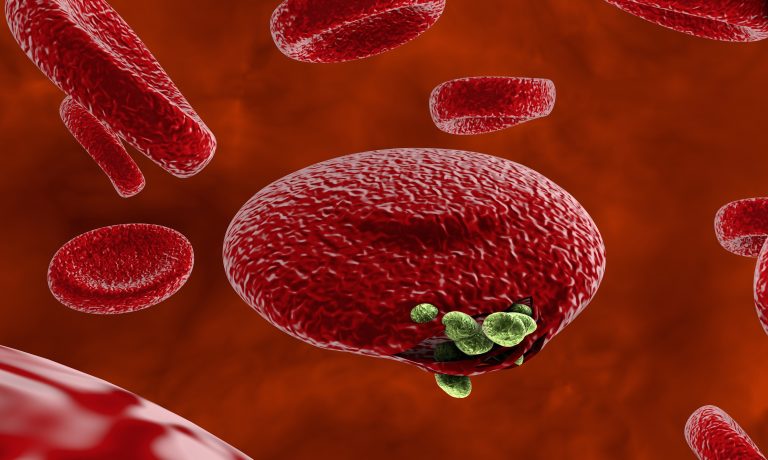
Microbiology and Cell Science majors develop fundamental knowledge of prokaryotic and eukaryotic cells and viruses. Studies focus on the physiology and genetics of microorganisms, the mechanisms of pathogenesis and innate immunity systems, astrobiology, bacterial and genome sequencing and bioinformatics. This major prepares students for entry into professional programs in medicine, dentistry and veterinary medicine and provides a strong foundation for graduate studies in microbiology, cell biology and related cellular and biomedical sciences. The major also provides a background for entry into government research, industrial research and diagnostic laboratories.
Favorite Courses
- Astrobiology (MCB 3703)
- Bacterial and Viral Pathogens (MCB 4203)
- Basic Biology of Microorganisms (MCB 3020)
- Bioinformatics (MCB 4934)
- The Legacy of Pasteur: one-week intensive study in Paris (ALS 4404)
- Virology (MCB 4503)
Possible Careers
- Bioinformatics Specialist
- Biotechnologist
- Clinical Microbiologist
- Clinical Trials Manager
- Dentist
- Educator
- Geneticist
- Hospital Technician
- Laboratory Technician
- Microbiologist
- Pharmacist
- Project Manager
- Technician
- Veterinary Medicine Professional
Graduates are Now:
- An environmental biotechnologist for Westinghouse and adjunct assistant professor of environmental engineering sciences at Clemson University
- A liver disease specialist at the University of Arkansas for Medical Sciences, where he serves as a transplant hepatologist.
- A researcher for the U.S. Food and Drug Administration and an executive
- coach and organizational development consultant for Center of Veterinary
- Medicine
More Information
Philosophy
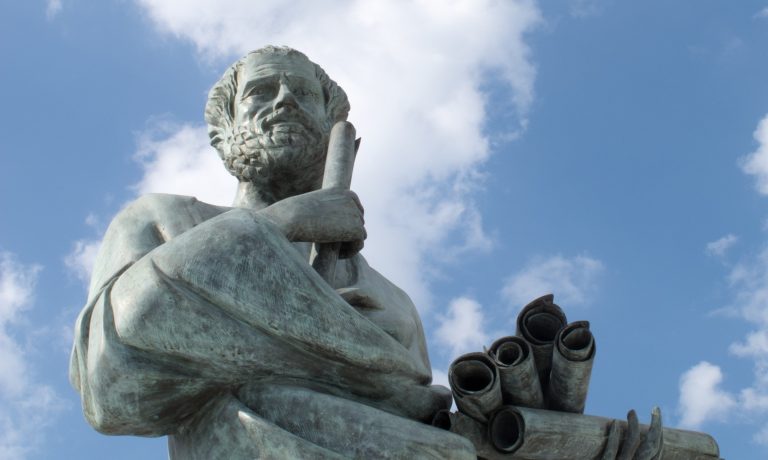
Philosophy addresses the most fundamental problems that arise when reflecting on the nature of the world and our place in it. Philosophy majors garner critical thinking and sound reasoning skills essential to effective thought and communication. A philosophy major address problems from a conceptual rather than empirical approach, developing models adequate to the phenomena they want to understand.
Favorite Courses
- Bioethics (PHI 3633)
- Philosophy of Religion (PHI 3700)
- Philosophy of Space and Time (PHI 4542)
- Symbolic Logic (PHI 3130)
Possible Careers
- Administrator
- Communicator
- Counselor
- Creative Writer
- Editor
- Educator
- Journalist
- Manager
- Mediator
- Non Government Organizations Officer
- Public Relations Professional
- Publisher
- Social Worker
- Systems Analyst
- Technical Writer
Graduates are Now:
- The president of the Pinellas County Opportunity Council and a partner in a private law practice.
- A columnist with the Atlanta Journal-Constitution and America, a national Jesuit magazine.
- A Client Director working for Microsoft, managing relationship with top clients in the Chicago area.
- A pediatrician who went straight from UF into medical school at the University of Miami.
More Information
Physics

The laws of physics are the basic building blocks for scientific research and engineering. Physics majors gain broad-based knowledge and experience in the application of these laws, in addition to hands-on experience in performing experiments and building instrumentation.
Physics majors are employed in industry doing applied work such as the development of the next generation of transistors, as well as in academia, seeking answers to such fundamental questions as to what the ultimate constituents of matter are.
Favorite Courses
- Introduction to Modern Physics (PHY 3101)
- Introduction to Quantum Mechanics I (PHY 4604)
- Introduction to Weather and Climate (MET1010)
- Thermal Physics (PHY 3513)
Possible Careers
- Astrophysicist
- Atmospheric Scientist
- Biophysicist
- Ceramic Engineer
- Civil Engineer
- Clinical Scientist
- Computer Scientist
- Cosmologist
- Educator
- Financial Analyst
- Geophysicist
- Materials Scientist
- Mathematical Physicist
- Nuclear Physicist
- Renewable Energy Manager
- Research Scientist
- Sound Engineer
- Satellite Engineer
- Science Writer
Graduates are Now:
- A U.S. Air Force fighter pilot
- A professor of biomedical engineering at Duke University
- The Chief Engineer for NASA
More Information
Political Science
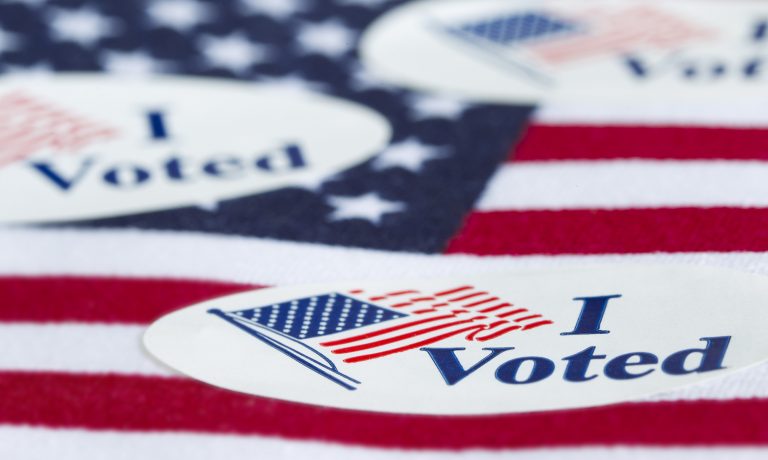
For students intending to pursue a career in or related to the public sector, the political science major is ideal. Majors gain an understanding of how politics and government operate, governmental values, and critical and analytic skills necessary for understanding the political arena. Courses include areas as diverse as American and comparative politics, international relations, political theory, public administration, and public policy. Students are encouraged to serve in a political internship, participate in an overseas studies program, and to conduct independent research with faculty.
Favorite Courses
- Arab-Israeli Conflict (CPO 4401)
- Politics of Education (PUP 4404)
- Race, Law and the Constitution (POS 4624)
- Rich and Poor Nations (INR 4035)
Possible Careers
- Advocate
- Administrator
- Analyst
- Archivist
- Campaign Operative
- City Planner
- Communications Director
- Intelligence Officer
- Journalist
- Legislator
- Lobbyist
- Mediator
- Policy Analyst
- Political Commentator
- Public Opinion Analyst
- University Administrator
Graduates are Now:
- The Managing Editor for The Onion
- An Intelligence Analyst for the National Security Agency
- A U.S. Congresswoman
More Information
Portuguese

Students pursuing a Portuguese major enter a program that stresses the language and culture of Brazil, with complementary studies of Portugal and Lusophone Africa.
Brazilians constitute one of the fastest growing immigrant populations of Florida, which does more than $2 billion worth of trade with Brazil annually. Brazil alone has 200 million Portuguese speakers. Therefore, students pursuing careers related to Latin America will profit greatly from knowing the language.
Favorite Courses
- Crime and Detective Fiction in Brazil (POW 4930/6930)
- Empire to Integration: Cultural Dimensions of Portuguese Globalism (PRT 3930/WST 3930)
- Favela Brazilian Culture (POR 3502)
- Latin American Science Fiction and Fantasy (PRT 3930/LAS 4935)
- Music and Literature (POW 4930)
Possible Careers
- Agricultural Affairs Specialist
- Business Administrator
- Consultant
- Customs Official
- Editor
- Educator
- Government Worker
- Human Resources Manager
- Interpreter
- Manufacturer
- Marketer
- Non Government Organization Officer
- Tourism Specialist
- Translator
Graduates are Now:
- An employee of a Non Government Organization in Rio de Janeiro
- A Sports Manager working for international soccer concerns
- The International Manager of a luxury travel agency
More Information
Psychology
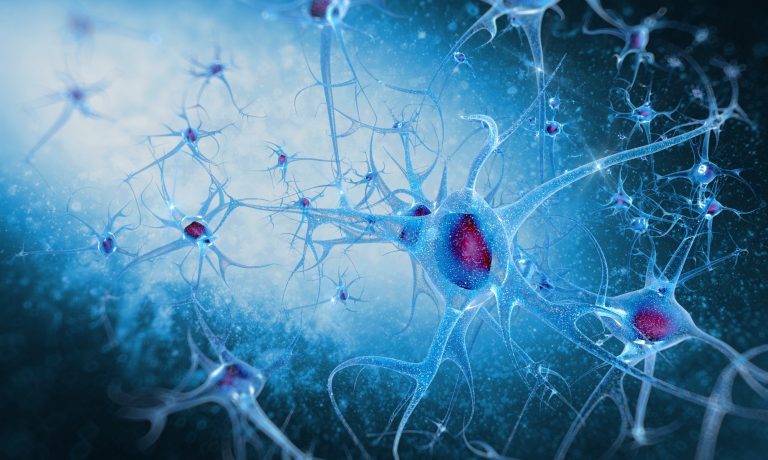
Psychology majors study mental processes and behavior, as well as the physiological and neurobiological processes and their effect on behaviors. Students receive a broad, science-based liberal arts education that explores psychology from both natural and social science perspectives. With faculty possessing expertise in five different areas of specialization, psychology majors at UF are well-prepared for graduate study in psychology, advanced professional programs, or a diverse array of careers.
Favorite Courses
- Aging and the Brain (DEP 4930)
- Animal Cognition (PSY 4930)
- Applied Behavior Analysis (EAB 4714C)
- Cognitive Neuroscience (PSB 4342)
- Eating Disorders (PCO 4930)
- Evolutionary Psychology (SOP 4704)
- Infant Development (DEP 4115)
- Positive Psychology: The Science of Happiness (PSY 4930)
- Psychology of Eating and Obesity (PSY 4930)
- Psychology of Law (PSY 4930)
- Psychology of Relationships (SOP 4704)
- Psychology of Women (PCO 4272)
Possible Careers
- Art Therapist
- Behavior Analyst
- Biogerontologist
- Career Counselor
- Child Abuse Counselor
- Clinical Social Worker
- Counseling Psychologist
- Developmental Psychologist
- Exercise Therapist
- Forensic Psychologist
- Gerontologist
- Managers
- Marriage and Family Therapist
- Medical Social Worker
- Mental Health Specialist
- Psychiatrists
- Sports Psychologist
- Victim Advocate
- Zookeeper
Graduates are Now:
More Information
Religion

Religion is arguably the most powerful and pervasive force in the world. Majoring in religious studies can help you understand the complex and sometimes volatile relationships between religion and politics, economics, and social structures, as well as the ways in which the past (scripture, tradition, history) has helped shape the present. In our increasingly interdependent global community, awareness of various past and present features of religious life can lay the foundation for informed and thoughtful analysis of contemporary life. Also, the Religion major complements other CLAS programs; a number of our students have double-majored in Anthropology, History, and Political Science, to name a few. READ MORE.
Favorite Courses
- Environmental Ethics (REL 2104)
- Religion, Medicine, and Healing (REL 3098)
- Death and Afterlife (REL 3191)
- Hebrew Bible as Literature (REL 3213)
- Islam in Africa (REL 3371)
- Religion and Violence (REL 3395)
Possible Careers
- Conflict Resolution Specialist
- Development Specialist
- Diplomat
- Editor
- Educator
- Faith Based Service Worker
- Counselor
- Chaplain
- Pastoral Ministry
- Peace Keeper
- Policy Developer
- Program Administrator
- Public Service Worker
- Social Service Manager
- Writer
Graduates are Now:
- A Law Clerk for a Superior Court in Washington State
- The Academic Dean at Metropolitan University
- An Assistant Professor of Pulmonary, Critical Care and Sleep Medicine
More Information
Russian

The Department of Languages, Literatures, and Cultures offers a Russian Studies major. Russian majors develop a solid working knowledge of the language and a thorough understanding of Russian culture and everyday life. The Russian language is the most geographically widespread language of Eurasia, the most widely spoken of the Slavic languages, and the largest native language in Europe. Studying Russian prepares students for graduate programs in the humanities and social sciences, as well as a variety of careers, including law, government, international relations, business, and education. Beyond this, it equips students with analytical skills essential for performing effectively in today’s multicultural world.
Favorite Courses
- Corrective Phonetics and Intonation (RUS 4780)
- Language and Culture of the Russian Business World (RUS 4502)
- Russia Today (RUT 3504)
- Russian Cultural Heritage (RUT 3500)
- Russian Drama and Poetry (RUW 4301)
- Russian Fairy Tales (RUT 3514)
Possible Careers
- Bilingual Administrator
- Border Patrol
- Officer
- Business Person
- Computer Programmer
- Cultural Consultant
- Customs Officer
- Engineering
- Foreign Company Representative
- Foreign Service Officer
- Intelligence Officer
- Journalist
- Law Enforcement
- Translator
Graduates are Now:
More Information
Sociology

Sociology majors study social life and the causes and consequences of human behavior. Students learn various research methods to examine and analyze the structure of groups, organizations, and societies, as well as how people interact within these contexts. Sociology majors gain skills on how to identify and solve problems, how to conduct research, how to relate to others, and how to write effectively. The unique perspective of sociology leads many students to pursue double majors in English, Political Science, Anthropology, Biology, History, Family, Youth and Community Sciences, and Journalism.
Favorite Courses
- Deviance and Criminology (SYP 3510)
- Sociology of Human Sexuality (SYP 4060)
- Sport, Society and Politics (SYA 4930)
- Social Entrepreneurship (SYA 4930)
- Environment and Society (SYD 6517)
- Gender and Health (SYD 3805)
- Minorities in American Society (SYD 3700)
- Sociology of Reproduction and Gender (SYD 4808)
Possible Careers
- Arbitrator
- Caseworker
- Clinical Sociologist
- Community Health Educator
- Community Service Manager
- Crisis Intervention Specialist
- Demographer
- Educator
- Family Services Social Worker
- Human Resources Specialist
- Intelligence Researcher
- Investigator
- Market Researcher
- Research Director
- Social Ecologist
- Social Pathologist
- Social Science Researcher
- Public Relations Specialist
- Urban Planner
Graduates are Now:
- An intern at Ashoka, a global association of social entrepreneurs
- An Executive Talent Scout at Nike
- A program administrator for International Planned Parenthood Federation
More Information
Spanish Studies

Spanish is the second most natively spoken language in the world. Through study of the literary and linguistic heritage of Spain and Latin America, faculty engage students in the processes of critical reading and writing and help them to acquire and to refine their abilities to speak, understand, read and write the Spanish language. Spanish majors garner a fundamental understanding of the languages, cultures and literatures of the Spanish-speaking countries of Europe and the Americas. They also gain a broad knowledge of the humanities, history, and the social sciences.
Favorite Courses
- Certificate in Spanish for the Professions, 12 credit hours at the 3000 level for working in an increasingly-global community.
- Commercial Spanish (SPN 3440)
- Hispanic Women Writers (SPW 4780)
- Marketing and Advertising in the Spanish-Speaking World (SPN 3442)
- Masterpieces of Spanish Literature (SPT 2101)
- Sociolinguistics of the Spanish-Speaking World (SPN 4882)
- Spanish Conversation, Film, and Culture (SPN 3392)
Possible Careers
- Advertiser
- Agriculturalist
- Analyst
- Business Administrator
- Communications Professional
- Educator
- Foreign Service Officer
- Interpreter
- Journalist
- Law Enforcement
- Manager
- Public Relations / Communications Officer
- Reporter
- Social Service Worker
- Translator
Graduates are Now:
- A professor of 20th century Spanish theater and literature at the University of Cincinnati and honorary fellow of the Spanish Royal Academy
- A teacher of English in a high school in Puerto Rico
- Deputy General Counsel to the Florida Attorney General and adjunct professor of Communication at Florida State University
More Information
Statistics

Statistical analysis lies at the heart of most research, and statisticians are important in many fields, from medicine to agriculture to industry and business. Statistics majors learn to use mathematical skills to solve practical problems, such as assessing economic and social conditions, estimating political opinion and monitoring effectiveness of government programs. Students learn how to design studies that effectively address the purpose of a research project and how to properly analyze the data collected in that study. Statistics majors have the option to minor in actuarial science, a profession involving the statistical and financial practices of insurance.
Favorite Courses
- Introduction to Probability (STA 4321)
- Introduction to Time Series and Forecasting (STA 4853)
- Multivariate Statistical Methods (STA 4702)
- Regression Analysis (STA 4210)
- Stochastic Processes (STA 4821)
Possible Careers
- Actuary
- Biostatistician
- Campaign Statistician
- Educational Testing Assessor
- Educator
- Government Surveyor
- Market Researcher
- Medical Researcher
- Meteorologist
- Psychometrician
- Risk Manager
- Quality Assurance Officer
- Quantitative Operations Manager
Graduates are Now:
More Information
Sustainability Studies

A Sustainability Studies major prepares students for global citizenship with a firm grounding in the natural sciences, the social sciences, and the humanities. Majors explore how to maintain ecological and environmental health, create economic welfare, and pursue social justice in a changing world. Courses investigate the relationship of sustainability to culture, ethics, economics, politics, agriculture, technology, the built environment, ecology, and natural systems. In addition to developing skills in critically assessing sustainability principles and practices, students put their knowledge to work on campus and the local community in the capstone course, Sustainability in Action.
Favorite Courses
- American Environmental History (AMH 3630)
- Classical Antiquity and Sustainability (CLA 2521)
- Ethics and Ecology (PHM 3032)
- Facets of Sustainability (IDS 2154)
- Politics of Sustainability (POS 2032)
- Social Institutions and Environment (SYD 4512)
- Sustainability and the Changing Earch (GLY 2038)
Possible Careers
- Advocate
- Conservation Biologist
- Consultant
- Educator
- Field Service Engineer
- Park Ranger
- Solar Energy Developer
- Staff or officer in government agency
- Staff or officer of non-governmental organization
- Sustainability Executive in Business Corporation
- Urban Planner
- Waste Disposal Specialist
- Wind Energy Developer
More Information
Women's Studies

Women’s Studies majors study how multiple systems of power (e.g., related to ability status, class, ethnicity, gender, race, and sexual orientation) intertwine to shape people’s experiences. They learn how to put their knowledge into practice to transform these systems and expand equity and opportunities for all. Women’s studies education emphasizes experiential learning, including service-learning courses, practicum, and internships. Women’s studies students are well-prepared for graduate and professional school, or to pursue careers in a variety of fields, including education, journalism, community activism, arts and entertainment, international relations, health professions, and more.
Students can pursue the general concentration in the major or choose one of the specialized tracks in International Perspectives on Gender or Theories and Politics of Sexuality. Minors are also available in Women’s Studies, Theories and Politics of Sexuality, and Health Disparities in Society.
Favorite Courses
- WST 2322 Introduction to Health Disparities
- WST 2311 Humanities Perspectives on Gender and Sexualities
- WST 2322 Social Sciences Perspectives on Gender and Sexualities
- WST 3323 Gender, Bodies, and Health
- WST 3335 Women and Gender Analysis through Film
- WST 3371 Women, Leadership, and Diversity in a Global Environment
- WST 3415 Transnational Feminism
- WST 3606 Sexualities Studies
- WST 3610 Gender, Race, and Science
- WST 3663 Gender and Food Politics
- WST 3930 Gender, Race, & Sex in Media
- WST 3930 Sexual Ethics
- WST 3930 Violence Against Women
- WST 4707 Discrimination and Health
- WST 4930 LGBTQ+ Movements and Activisms
- WST 4940 Internship
Possible Careers
- Advisor
- Administrator
- Businessperson
- Counselor
- Educator
- Foreign Service Officer
- Librarian
- Lobbyist
- Marketing Consultant
- Political Consultant
- Public Policy Analyst
- Public Relations Spokesperson
- Reporter
- Social Services Worker
Graduates are Now:
- The Marketing Director for an entertainment company in Miami
- A Freshman Admissions Officer for the University of Florida
- A Violence Prevention Advocate for Peaceful Paths Domestic Abuse Network
More Information
Zoology

Zoology majors focus on the study of individual organisms and populations and their relationships with other species and the environment. Coursework emphasizes the study of anatomy, behavior, evolution, ecology, genetics, physiology, and other specialized fields. Advanced undergraduate students are encouraged to participate in research with faculty. An undergraduate degree in zoology is largely shaped by a student’s course, laboratory and field work. Most zoology majors choose a zoology specialization to prepare for graduate studies or specialized employment; a pre-professional specialization to prepare for medical, dental or veterinary programs; or a secondary-education specialization to prepare for secondary-school teaching.
Favorite Courses
- Comparative Biomechanics (PCB 4712)
- Evolution (PCB 4674)
- Genetics (PCB 3063)
- Practical Experience in Teaching Zoology (ZOO 4940)
- Theory and Practice in the Biological Sciences (BSC 3402)
- Vertebrate Zoology (ZOO 2303C)
Possible Careers
- Animal Care Specialist
- Aquaculturalist
- Biologist
- Ecologist
- Educator
- Entomologist
- Evironmental Consultant
- Forensic Scientist
- Geneticist
- Herpetologist
- Marine Biologist
- Microbiologist
- Naturalist
- Park Ranger
- Researcher
- Technical Writer
- Veterinarian
Graduates are Now:
- Winner of the 1968 Nobel Prize in Physiology or Medicine
- An artist, coastal ecologist, and editor for the Cousteau Society
- The president and CEO of the Coral Gables Chamber of Commerce
